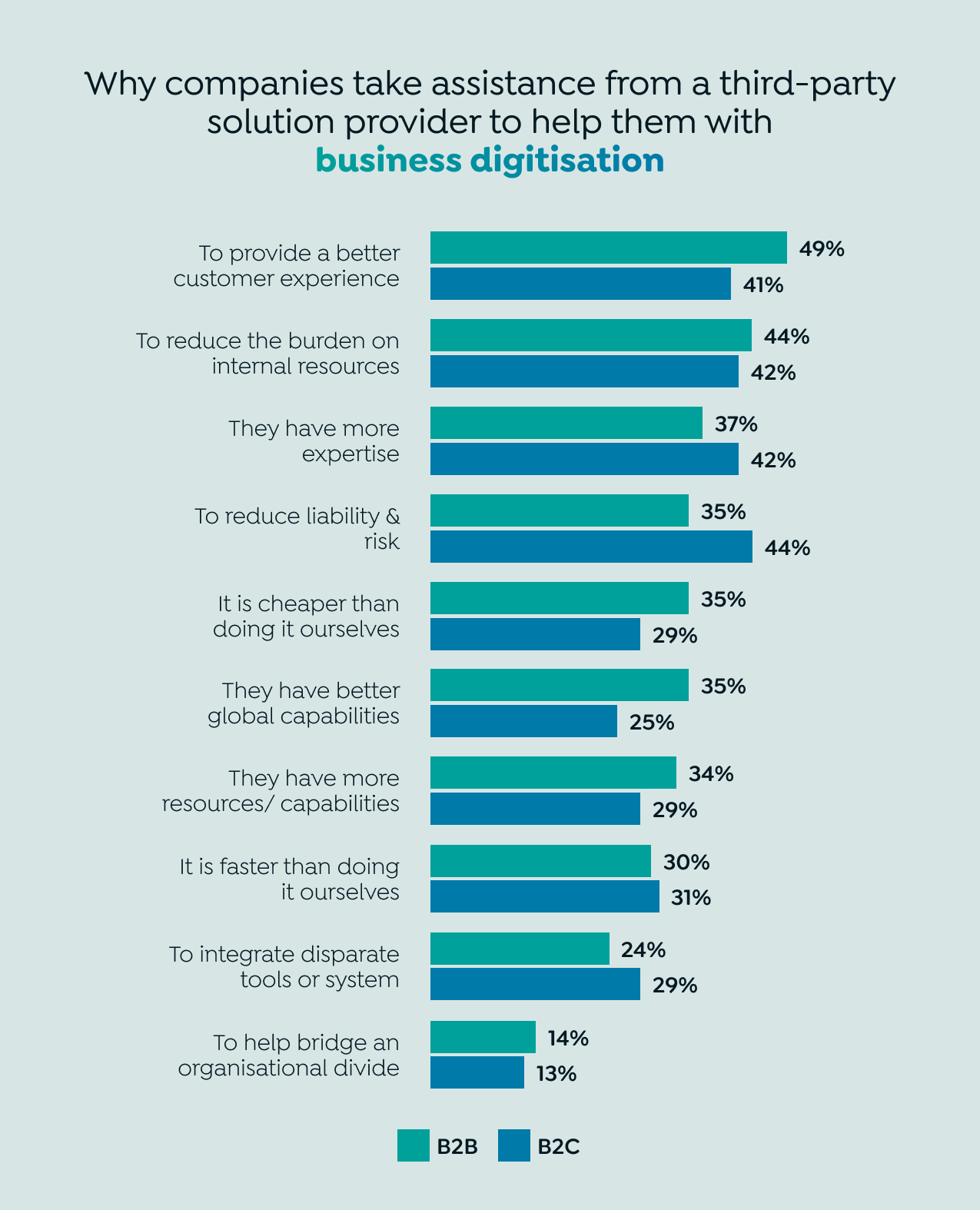In today’s competitive business landscape, companies continuously seek innovative ways to enhance efficiency, reduce costs, and maintain a competitive edge. As a result, outsourcing software development projects has become a popular trend in the tech industry as it allows companies to access a wider pool of skilled resources and gain cost advantages.
At Aecor we recognise the need for personal service and so our headquarters are in the UK where we manage our client projects. However, by having our development team based in India we can also benefit from technical expertise and cost savings that we know businesses require. We believe this is the optimum model for software development as it is the best of both worlds.
The Evolution of Outsourcing
Outsourcing has evolved from a cost-cutting measure to a strategic tool that can provide substantial value to businesses. Initially, outsourcing was primarily about reducing operational costs by shifting non-core activities to external vendors. However, as global markets have become more interconnected, outsourcing has transformed into a sophisticated strategy for accessing specialised skills, improving service quality, and fostering innovation.
The Rise of Digital Transformation
The growing push for digital transformation is compelling businesses to remain agile and innovative. Companies are increasingly investing in digital technologies to streamline operations, enhance customer experiences, and create new business models. However, the rapid pace of technological change presents challenges, including the lack of specialised skills and the financial burden of maintaining in-house teams for every aspect of digital development. The combination of cost efficiency and technical expertise makes outsourcing an attractive option for companies looking to accelerate their digital transformation efforts.
Cost Savings: The Financial Benefits of Outsourcing
One of the primary motivations for outsourcing digital projects is the substantial cost savings it offers.
1. Lower Labour Cost: For example, outsourcing is driven by several factors, such as lower labor costs, reduced overhead expenses, and the flexibility to scale operations efficiently. Non-US and UK companies (such as India) have long been recognised as providing cost-effective technology solutions. The lower cost of living in a country such as India translates to significantly lower labour costs compared to Western countries. This allows businesses to hire highly skilled software developers, engineers, and IT professionals at a fraction of the cost of their counterparts in the UK. This can result in substantial savings, particularly for large-scale projects that require extensive manpower.
2. Reduced Overheads: Outsourcing also helps businesses reduce overhead costs associated with maintaining an in-house team. These overheads include expenses related to office space, utilities, equipment, and employee benefits. By outsourcing these overheads are eliminated or significantly reduced.
3. Scalability and Flexibility: Outsourcing gives businesses the flexibility to modify their operations based on project requirements, ensuring they can scale resources up or down as circumstances dictate. This scalability is particularly valuable in the fast-paced digital landscape, where project demands can fluctuate rapidly. This flexibility ensures that businesses only pay for the resources they need, on a timeline that suits them.
Focus on Core Competencies
Outsourcing non-core tasks like digital development allows businesses to concentrate on their core strengths. This allows companies to invest more time and resources into areas that drive growth such as marketing, sales, and product innovation. The cost savings realised from outsourcing can be reinvested into these core areas, fostering long-term business growth.

Technical Expertise: While cost savings are a significant advantage of outsourcing, access to technical expertise is equally important. Countries such as India have a vast pool of highly skilled professionals with expertise in various domains of digital technology bringing many advantages including access to specialised skills, innovation, and quality assurance.
Access to Specialised Skills: India’s strong educational system consistently produces a large pool of graduates in science, technology, engineering, and mathematics (STEM) disciplines. As a result, the country boasts a rich talent pool of software developers, engineers, data scientists, and IT professionals.
Innovation and Creativity: India’s outsourcing industry is known for its culture of innovation and creativity. Indian tech professionals are not just skilled in executing tasks but are also adept at problem-solving and innovation. They bring fresh perspectives and creative solutions to complex technical challenges, driving innovation in digital projects. Many Indian firms invest heavily in research and development (R&D) and encourage their teams to stay updated with the latest technological trends and advancements. This culture of continuous learning and innovation ensures that businesses benefit from cutting-edge solutions that enhance their digital capabilities.
Quality Assurance and Reliability: Ensuring quality assurance is a vital component of successful digital project development. Outsourcing firms tend to have a strong focus on delivering high-quality solutions that meet international standards. Many firms are certified with ISO, CMMI, and other quality standards, ensuring that they adhere to rigorous quality control processes. Further, the time zone difference between countries such as India and Western countries can be leveraged to create a continuous workflow, with Indian teams working on projects during the Western business day’s off-hours creating a round-the-clock development cycle.
Choosing the right Outsourcing Partnership
To maximise the benefits of outsourcing digital projects it is essential to build a successful outsourcing partnership. This involves selecting the right outsourcing partner, establishing clear communication channels, and fostering a collaborative working relationship.
Key factors to consider include:
Establishing Clear Communication Channels: Effective communication is the cornerstone of a successful outsourcing partnership. Establishing clear communication channels ensures that both parties are aligned on project goals, timelines, and expectations. Key communication practices include regular meetings, the use of project management tools, and the provision of clear documentation.
Expertise: Ensure that the outsourcing partner has expertise in the specific technologies and domains relevant to your project.
Track Record: Review the partner’s portfolio and case studies to evaluate their experience in delivering similar projects.
References: Seek references from other clients to gauge the partner’s reliability, communication skills, and ability to meet deadlines.
Cultural Fit: Assess the partner’s work culture and values to ensure alignment with your company’s culture and business objectives.
Outsourcing digital projects to a global team offers a strategic advantage for businesses seeking cost savings and gaining technical expertise. The cost efficiencies derived from lower labour costs, reduced overheads, and operational scalability enable businesses to allocate resources more effectively. Simultaneously, access to an increased pool of skilled professionals, coupled with a culture of innovation and quality assurance, ensures that digital projects are executed with excellence.
Aecor has an optimal business model that allows you to benefit from a UK-based management team, whilst also reaping the rewards of skilled labour at competitive pricing.







